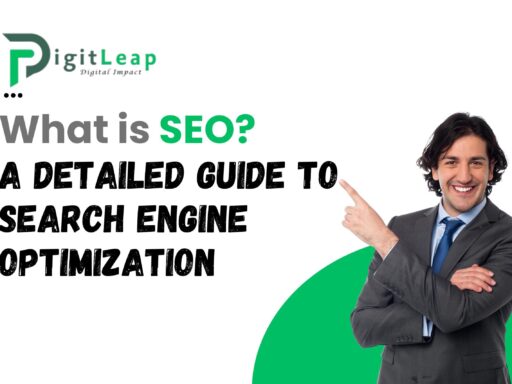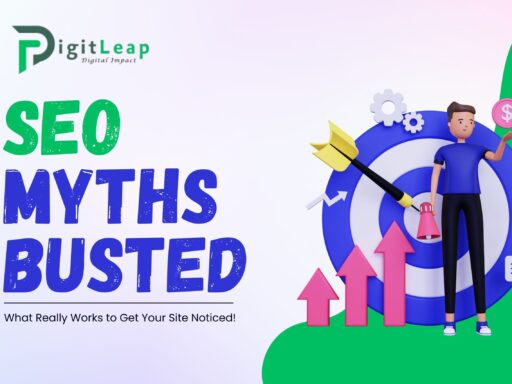How to Become Exceptional at SEO: A Comprehensive Guide
In today’s digital-first world, mastering SEO (Search Engine Optimization) is one of the most important skills for anyone looking to succeed online. Whether you’re a business owner, marketer, or aspiring SEO specialist, having a strong command of SEO can dramatically boost your website’s visibility, attract more traffic, and increase conversions.
But becoming exceptional at SEO doesn’t happen overnight—it requires a mix of knowledge, strategic thinking, and ongoing learning. In this guide, we’ll break down the essential steps to becoming an SEO expert and how to stay ahead of the game.
Understanding SEO Basics
What is SEO?
At its core, SEO is the process of optimizing your website to rank higher on search engines like Google, Bing, and Yahoo. This involves improving various elements of your site to make it more attractive to both search engines and users. The goal? To drive organic (unpaid) traffic to your site, increase engagement, and boost your overall online presence.
How SEO Drives Traffic and Conversions
SEO isn’t just about driving traffic—it’s about attracting the right traffic. By targeting specific keywords and creating relevant content, SEO helps attract users who are already interested in what you offer. The more relevant your traffic, the higher the likelihood of converting visitors into customers.
On-Page vs. Off-Page SEO
There are two main aspects of SEO: on-page and off-page. On-page SEO refers to optimizations you make on your own website, such as content, images, and internal links. Off-page SEO focuses on building your site’s authority through backlinks, social signals, and external validation.
Mastering Keyword Research
The Importance of Keywords in SEO
Keywords are the backbone of SEO. These are the words and phrases that users type into search engines when looking for information. Choosing the right keywords is essential to ensure your content appears in front of the right audience.
How to Find the Right Keywords
Keyword research tools like Google Keyword Planner, Ahrefs, and SEMrush are invaluable for finding high-traffic, low-competition keywords. Start by identifying topics relevant to your audience and then research terms they’re most likely searching for.
Long-Tail vs. Short-Tail Keywords
Short-tail keywords (e.g., “shoes”) are broader and have high search volumes but are often highly competitive. Long-tail keywords (e.g., “best running shoes for women”) are more specific and typically have less competition, making them easier to rank for and often more valuable for conversions.
Creating SEO-Optimized Content
How to Write with SEO in Mind
Content is king in SEO. When creating content, always write for humans first and search engines second. Ensure your writing is informative, engaging, and answers the user’s search intent.
Incorporating Keywords Naturally
It’s important to avoid keyword stuffing (overloading your text with keywords). Instead, sprinkle them naturally throughout your content, including in headings, meta descriptions, and image alt text.
Importance of Readability and User Experience
Google rewards websites that offer a good user experience. Write in a conversational tone, use short paragraphs, bullet points, and visuals to make your content easy to read and navigate.
On-Page SEO: The Technical Essentials
Meta Titles and Descriptions
Your meta title is the clickable headline that appears on search engine result pages (SERPs). Ensure it’s compelling and includes your primary keyword. The meta description is a brief summary of your page content—use this to entice users to click through to your site.
Header Tags and Their Structure
Proper use of header tags (H1, H2, H3, etc.) helps search engines understand the hierarchy of your content. These also make your page more user-friendly and improve readability.
Internal Linking Strategies
Internal links guide users to other relevant pages on your site and help search engines crawl and index your content more effectively. Use them strategically to improve site structure and user engagement.
Off-Page SEO: Building Authority
Understanding Backlinks
Backlinks (links from other websites to yours) are one of the most important ranking factors in SEO. The more high-quality backlinks you have, the more authoritative your site appears to search engines.
How to Build High-Quality Backlinks
Reach out to reputable websites in your industry for guest blogging opportunities, or create link-worthy content that others will naturally want to share and reference. Avoid spammy, low-quality link-building tactics, as they can harm your SEO.
The Role of Social Media in SEO
While social media signals don’t directly impact SEO, they can drive traffic to your site and increase visibility. Strong social engagement can also lead to more backlinks and brand exposure.
Mobile Optimization: A Must for SEO Success
Why Mobile-First Indexing Matters
Google now prioritizes the mobile version of websites for indexing and ranking. If your site isn’t optimized for mobile, you’re missing out on a huge portion of potential traffic.
Ensuring Your Site is Mobile-Friendly
Make sure your site loads quickly on mobile devices, is easy to navigate, and has responsive design elements that adapt to different screen sizes.
Responsive Design vs. Mobile-Specific Sites
While responsive design ensures your site looks good on any device, mobile-specific sites offer a tailored experience. Both approaches can work, but responsive design is often more cost-effective and easier to maintain.
Page Speed and User Experience
How Page Speed Affects SEO
A slow website can frustrate users and cause them to leave, which increases your bounce rate. Google uses page speed as a ranking factor, so improving it is crucial for SEO success.
Tools to Analyze and Improve Page Speed
Tools like Google PageSpeed Insights, GTmetrix, and Lighthouse can help you identify areas where your site’s speed can be improved, from compressing images to minimizing code.
Enhancing Overall User Experience (UX)
Focus on clean navigation, easy-to-read fonts, and intuitive design to keep users engaged. A positive UX encourages longer site visits and more interactions, which can improve SEO rankings.
The Power of Local SEO
What is Local SEO?
Local SEO helps businesses rank for searches specific to their geographic area. If you run a local business, optimizing for local search can drive foot traffic and leads.
How to Optimize for Local Search
Ensure your business name, address, and phone number (NAP) are consistent across your website, social media, and directories. Use location-based keywords, and create content that appeals to local audiences.
Utilizing Google My Business for Local Visibility
Claiming and optimizing your Google My Business profile is a key step in improving local SEO. Add relevant information, encourage reviews, and update your business hours to rank better in local search results.
Leveraging Analytics to Improve SEO
Importance of Tracking SEO Performance
Tracking your SEO performance helps you understand what’s working and what needs improvement. Regularly monitor your traffic, keyword rankings, and conversion rates.
Google Analytics and Search Console
Both tools provide valuable insights into your site’s performance. Google Analytics tracks visitor behavior, while Search Console highlights how your site performs in search and identifies technical issues.
Using Data to Refine SEO Strategies
Analyzing your site’s performance data can help you fine-tune your strategies. Identify which keywords are driving traffic, where users drop off, and what content resonates most with your audience.
Staying Updated on SEO Trends
SEO is Always Evolving
Search engine algorithms are constantly changing, which means SEO best practices also shift over time. What worked last year might not work today.
How to Keep Up with Algorithm Updates
Follow reputable SEO blogs, attend webinars, and engage in SEO communities. Staying informed allows you to quickly adapt to changes and maintain your rankings.
Importance of Continuous Learning and Adaptability
The best SEO specialists are always learning. Whether through online courses, experimentation, or industry events, it’s essential to stay curious and adaptable.
Avoiding Common SEO Mistakes
Keyword Stuffing
Overloading your content with keywords can lead to penalties from search engines. Focus on natural keyword integration.
Ignoring Mobile Optimization
Failing to optimize for mobile can result in lost traffic and poor rankings, especially as mobile-first indexing becomes the norm.
Not Focusing on Quality Backlinks
Quantity isn’t as important as quality when it comes to backlinks. A few links from authoritative sites are worth more than dozens of low-quality ones.
The Role of Social Signals in SEO
Does Social Media Directly Impact SEO?
While social media doesn’t directly influence rankings, it can drive traffic and engagement, which indirectly helps SEO.
How to Use Social Media to Boost SEO Indirectly
Share your content on social platforms to increase its reach and visibility. The more people see and engage with your content, the higher the chances of earning valuable backlinks.
Best Practices for Social Media Sharing
Create shareable, engaging content. Use attention-grabbing headlines, visuals, and encourage social interaction to amplify your content’s reach.
Creating an SEO Strategy for Long-Term Success
Balancing Short-Term Wins and Long-Term Growth
While it’s tempting to chase quick SEO results, focus on building a sustainable strategy. Short-term wins are important, but long-term growth is where real success lies.
How to Develop a Sustainable SEO Plan
Start by setting realistic goals, conducting thorough keyword research, and consistently creating high-quality content. Combine this with a strong backlink strategy and regular performance analysis.
SEO Tools to Help Along the Way
Tools like Ahrefs, SEMrush, Moz, and Google Search Console are invaluable for keyword research, backlink tracking, and performance analysis.
Conclusion
Becoming exceptional at SEO takes time, effort, and continuous learning. By mastering the basics, staying updated on trends, and developing a strategic approach, you can drive significant organic traffic, boost your website’s visibility, and ultimately, grow your online presence. Whether you’re optimizing for local SEO, improving page speed, or building backlinks, a well-rounded, adaptable strategy is key to long-term success.
FAQs
Q.1 What’s the most important factor in SEO?
Quality content and backlinks are two of the most crucial factors for ranking high on search engines.
Q.2 How long does it take to see SEO results?
SEO is a long-term strategy, and it can take anywhere from 3 to 6 months to start seeing significant results.
Q.3 Can I do SEO on my own, or should I hire a professional?
You can certainly do SEO on your own with the right tools and knowledge, but hiring a professional can expedite the process and avoid common mistakes.
Q.4 How often should I update my SEO strategy?
Regular updates are essential, especially after major algorithm changes. Review your strategy every 6-12 months.
Q.5 Are paid tools necessary for SEO success?
While free tools can get you started, paid tools like Ahrefs or SEMrush provide more in-depth data and insights, which can help improve your SEO strategy faster.




